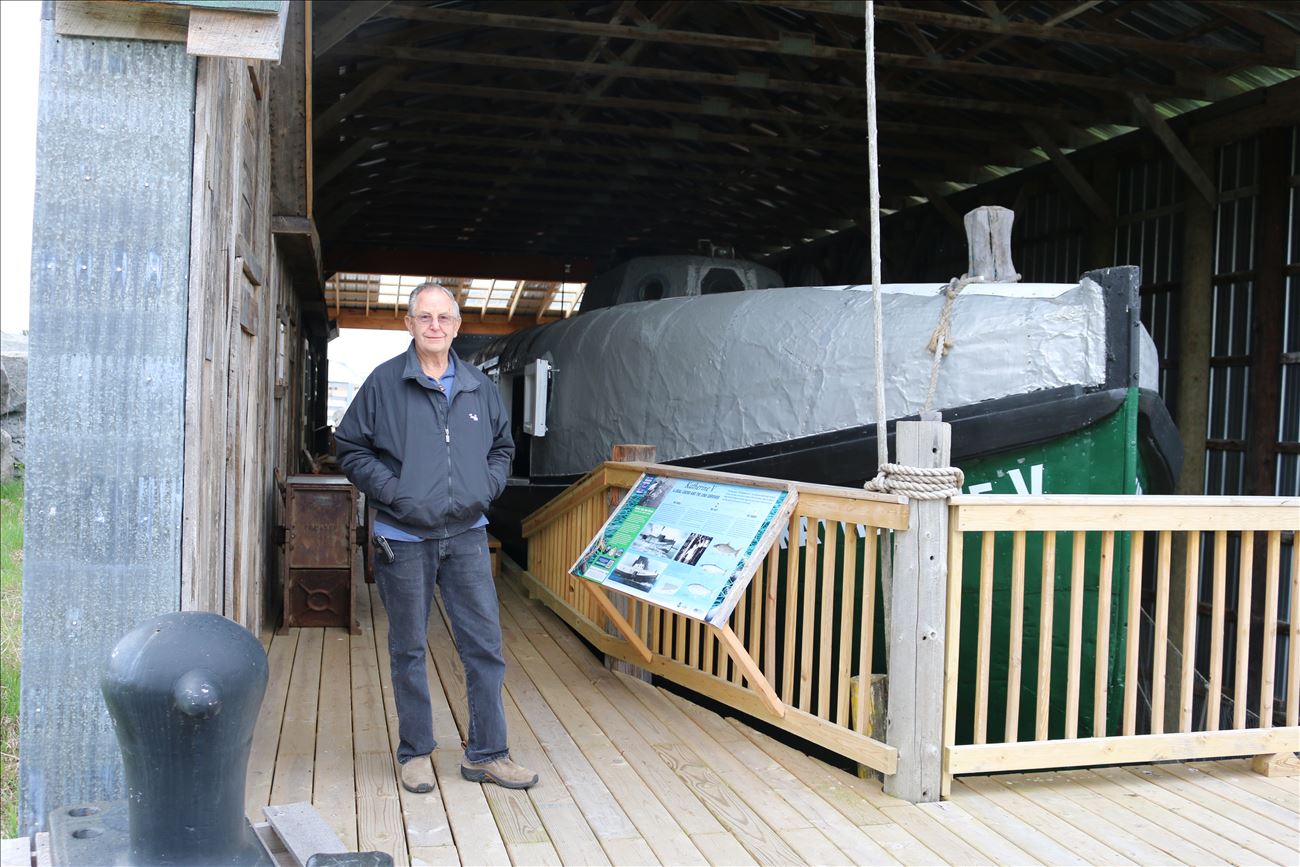An age old tradition encased in heritage, tradition, and family secrets commercial fishing has been a vital part of Alpenas economy. The Cross family has been in the industry since 1850. Clarence "Tuffy" Cross was the fifth generation commercial fisherman. He started working with the fishery selling fish on shore after school. He started on the water as a deckhand. He worked a long career.
Tuffy found work in the fishery from an early age. At fourteen he would sell the fish on the shore for twenty five cents a pound. This was just the start of a very long career in tied to the Great Lakes. He started working on the boat how most others did, as a deckhand. Being a deckhand meant that as the nets came up he had to get the fish out of the net and put them in a pail so that the fish can then be dressed or cleaned by someone else.
It was common for the boats to leave around midnight and work between ten to twelve hours a day. These long days were a reason that Commercial fishing had to compete with the factories. Most of the decline of commercial fishing was a direct result of the factories. Some would work at the factories for insurance, which commercial fishing was lacking, others would “jump ship” to get away from the long days starting at midnight. No matter the reason the numbers of commercial fishermen were declining.
This was not the only competition involving the fishery however. The buyers were in competition as well. With different buyers wanting different fish these buyers would buy each other out in order to get these commercial fishermen to target the fish they need and sell the catch to them.
Commercial fishing is a historical job, being the first industry in Alpena. With it there are many historical skills that are very useful to know. Until recently gill nets were the method used to catch fish. While they have since been banned for commercial fishing use, they were very effective while in use. This meant that anyone who could make or repair these nets were in high demand. This meant that people who knew how, including Tuffy Cross, were never short a job. They were never short of something to do either. When the nets were cotton they had to be repaired nearly daily. As the technology of these nets evolved nylon nets were introduced, they were sturdier being able to last around a week.
Gillnets would not be permanent however. The DNR banned gillnets for commercial fishing leading to the loss of many jobs. While commercial fishing has rebounded since for some the damage was already done. Many families like the Cross family left the industry.
Tuffy Cross went on to work with the Michigan Department of Natural Resources Fisheries Division, as captain of the R/V Chinook, for many years. In his retirement, he serves on the Board of Directors for the Besser Museum for Northeast Michigan, where he provides leadership for development of Great Lakes Fisheries Heritage exhibits at the museum - including restoration and interpretation of the historic Katherine V commercial gill net tug. He has also written and published two books about the local history of commercial fishing in northeast Michigan.
Written by Zach McDonald, Alpena High School Science in the Sanctuary (2019)
Source: Personal interview with Tuffy Cross
